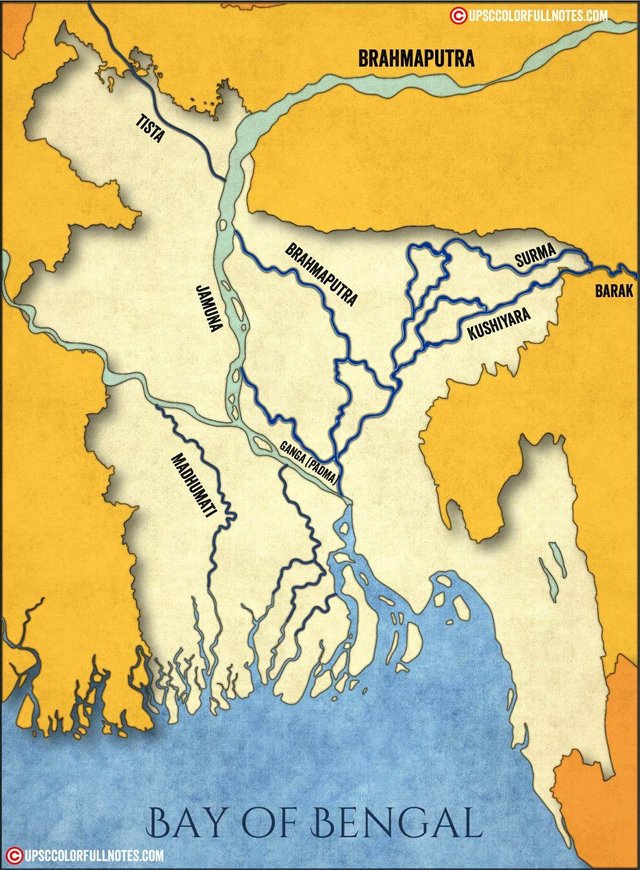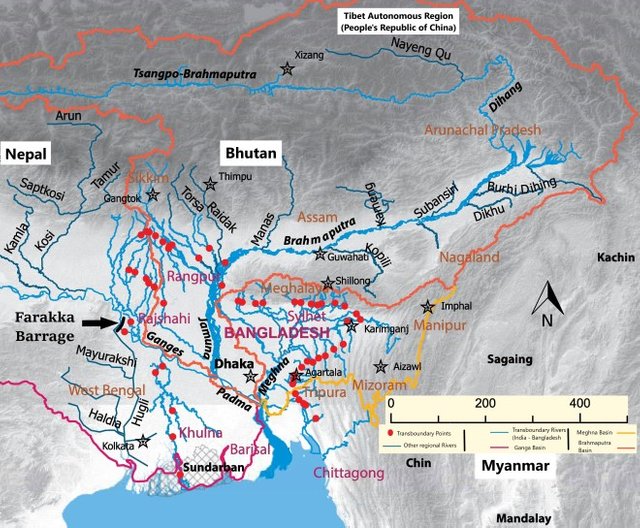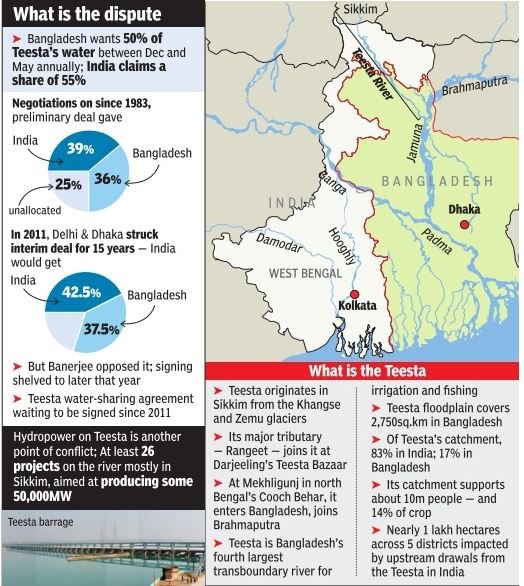The Looming Water Crisis: How India’s Farakka and Teesta Barrages Threaten Bangladesh

Farakka Barrage: A Legacy of Broken Promises

Located just 16.5 kilometres upstream from the Bangladesh border, the Farakka Barrage diverts a significant portion of the Ganges’ water flow during the dry season to the Hooghly River, severely reducing the water available downstream in Bangladesh. This diversion has caused severe environmental and economic damage in Bangladesh, particularly in the southwest region. The reduction in water flow has led to the region's desertification, disrupted agriculture, fisheries, and forest resources, and increased the severity of seasonal flooding.
The adverse effects of the Farakka Barrage have been well-documented. The sediment buildup in the riverbed has increased the frequency and intensity of flooding in northern Bangladesh. Furthermore, the region's ecological balance has been disrupted, with the once-thriving fish populations, mainly the iconic Hilsa fish, now nearly extinct in the affected areas. The economic losses are staggering, with direct damages estimated at $300 million and indirect losses likely far higher. These losses have a significant impact on the economic stability of Bangladesh, further underscoring the need for a fair water-sharing agreement.
Despite a 30-year water-sharing agreement signed between India and Bangladesh in 1996, which was supposed to ensure a fair water distribution, Bangladesh has never received its fair share of water. The unilateral withdrawal of water by India continues to this day, illustrating the power imbalance and the failure of diplomatic efforts to resolve the issue. This agreement, meant to be a solution, has become a source of contention and further highlights the need for a more effective and equitable agreement.
Teesta Barrage: The Lifeline Turned Lethal

The Gajoldoba Barrage, located about 70 kilometres upstream from the Bangladesh border, is a multi-phase project to provide irrigation and hydroelectric power in the Indian states of West Bengal and Bihar. With 44 gates, this barrage diverts Teesta’s water into various channels, significantly reducing the water flow into Bangladesh. The once-mighty river now trickles into Bangladesh, with the water flow reduced from 5,000 cubic feet per second (cusec) in 1985 to a mere 600-700 cusec today.
The impact on Bangladesh has been devastating. The Teesta Barrage Project, designed to irrigate 14% of Bangladesh’s arable land, is now severely compromised. Farmers who once relied on the Teesta’s water are now facing water scarcity, leading to reduced crop yields and economic hardship. The drying up of the river has also contributed to the desertification of northern Bangladesh, further exacerbating poverty and displacement in the region.
The frequent and sudden release of water from the Gajoldoba Barrage during the monsoon season makes the situation worse. This leads to severe flooding in Bangladesh, destroying homes, crops, and infrastructure. The annual flooding, combined with the erosion of riverbanks, has displaced thousands of people, turning them into climate refugees in their own country.
Diplomatic Failures and Future Challenges
The failure of Bangladesh’s policymakers and diplomats to secure a fair share of the Teesta River’s water highlights the broader challenges faced by the country in dealing with its powerful neighbour. Despite numerous negotiations and promises, the Teesta water-sharing agreement has remained elusive, primarily due to political resistance from the Indian state of West Bengal. This deadlock has left millions of Bangladeshis vulnerable to water scarcity and economic and social upheaval.
The recent floods in northern Bangladesh are a stark reminder of the ongoing crisis. With climate change exacerbating the unpredictability of monsoon patterns, the need for a sustainable and equitable solution to the water-sharing dispute has never been more urgent. However, achieving this will require diplomatic efforts and a rethinking of regional water management policies prioritising ecological balance and the well-being of all communities affected by these shared water resources.
Conclusion
India’s water management projects, particularly the Farakka and Teesta barrages, have become death traps for Bangladesh, causing severe environmental, economic, and social damage. The unilateral actions of India, combined with the failure of diplomatic efforts, have left Bangladesh in a precarious position. As climate change continues to alter weather patterns and water availability, the urgency for a fair and sustainable water-sharing agreement between India and Bangladesh cannot be overstated. The international community must play a crucial role in ensuring that water rights are respected and that regional stability is maintained.
Upvoted! Thank you for supporting witness @jswit.
@steem.history